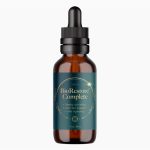from University of California at Berkeley Wellness Letter
This is the scenario, pretty familiar by now: a desperate health problem exists, and a tiny bit of new information appears. This is followed by a lot of media commotion and a coup for enterprising manufacturers of “nutritional supplements.”
In October a study of ginkgo biloba – an ancient Chinese herbal medicine widely available here in pill form – as a possible treatment for Alzheimer's disease was published in the Journal of the American Medical Association (JAMA).
Ginkgo biloba appeared to help some patients to a limited extent. A cautionary statement from the Alzheimer's Association was all but drowned out. The ensuing fuss centered largely on whether taking the herb could help people remember, for instance, where they put the car keys: “I've really gotten crisp,” burbled one gingko biloba user in Newsweek.
Gingko biloba is made from the leaves of the hardy gingko tree, a native of China that now grows everywhere, particularly in cities. Like all plant extracts, gingko biloba is full of chemicals – such as flavonoids and terpenoids, some apparently unique and as yet poorly understood. Some are antioxidants, though that does not necessarily mean they prevent disease. The term “antioxidant,” particularly as used in ads for supplements, has taken on the meaning of “miracle-worker,” but this is seldom the case. Gingko biloba bears an incidental resemblance to aspirin, in that it can keep blood clots from forming and may increase blood flow.
Where it shows promise
This herb has been prescribed in France and Germany for years against vascular disease (circulation disorders) and “cerebral insufficiencies,” which can mean anything from absent-mindedness and confusion to dementia.
Though it has been studied in Europe, most of the studies have been small, poorly designed, or otherwise flawed. Many questions remain unanswered – how effective ginkgo biloba is against one disorder or another how long it should be used, what the proper dosage is. German and French doctors have never claimed miraculous powers for it.
It does show promise for some circulatory disorders, such as intermittent claudication (pain in the legs due to obstructed blood flow, which is usually caused by atherosclerosis) and possibly for improving memory in older people with mild dementia.
No serious side effects have been reported, except for two cases of bleeding after long-term use. But it's logical that ginkgo biloba might well interact with other medications, such as aspirin.
The JAMA study was in reality not all that exciting. It was a yearlong trial of an extract of ginkgo biloba that began with more than 300 patients. All had been diagnosed with mild to moderate dementia – 80% met the criteria for Alzheimer' s. The dropout rate was high: only 137 of these people made it to the end. Some did not follow the treatment or thought it wasn't working, some were removed by their caregivers, and a few died. Improvements in mental function and behavior among those taking ginkgo biloba were small and of limited duration. About a third actually got worse. Zaven Khachaturian, director of the Ronald and Nancy Reagan Alzheimer's Research Institute, called the study encouraging but cautioned against false hopes. He pointed out another problem: “Commercially available ginkgo products may not contain the same preparation of herbs as was used in this study, so there is no way to predict the effects, positive or negative.”
Interestingly, Tacrine, a not-very-successful prescription drug for Alzheimer's, has similar limited effects. It was approved by the FDA not because it's a cure or even a very effective treatment, but because it might help a few people temporarily. Tacrine can have side effects and is also much more expensive than gingko biloba. But at least tacrine has been extensively studied and standardized.
Ginkgo biloba undaunted
There was no indication at all in the JAMA study that ginkgo biloba could be a “brain booster” for healthy people not suffering from dementia.
That hardly slowed down the Pharmanex Company and other purveyors of gingko biloba, who did not need a study in the first place. Their products, unregulated and untested, are already everywhere, aimed not at Alzheimer's patients but at the general public. Here are a few of the claims: “sharpens mental focus, improves memory and concentration, promotes circulation to the brain, maintains vigor and well-being, helps prevent free radical cell damage in the brain.” The package insert in Bio Ginkgo says you need to take the pills for 12 weeks to notice an effect. At two tablets a day, and $11 for 40 tablets, you'd have to spend $45 – enough to ensure a nice profit margin for the company whether your memory improves or not.
But do remember this:
If you're caring for an Alzheimer's patient, don't experiment with any kind of medication, herbal or otherwise, without professional advice.
If you're thinking of “crisping” your own mental powers, nobody knows whether gingko biloba would help or not, or even whether there's any active ginkgo biloba in whatever product you can find on the market.
Boost your brain by reading a book, doing memory exercises, getting into an interesting conversation, learning a new skill or reviving an old one, or just doing crossword puzzles.
So-called “brain boosters” are unlikely to smarten you up.










